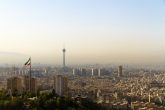May 02, 2017
A U.S. Plan for the Abbas-Trump Meeting
This week, Palestinian Authority President Mahmoud Abbas heads to Washington as President Donald Trump makes his first major foray into Israeli-Palestinian peacemaking. Thus far, the administration’s approach has exceeded expectations. Fears that Trump would quickly move the U.S. embassy to Jerusalem and declare open season for Israeli settlement construction have not materialized. Instead, he has declared his intention to make Israeli-Palestinian peace a priority. He has taken early steps to build a good relationship with Prime Minister Benjamin Netanyahu, while still encouraging the Israelis to restrain settlement activity. He has dispatched a special envoy — Jason Greenblatt, the president’s special representative for international negotiations — who has conducted a wide-ranging listening tour to get smart on the issues. And the White House invitation to Abbas is a sign that Trump appears willing to engage on this issue in a way that does not shatter previous norms. However, now the hard work begins.
Given his natural inclination to make a splash, Trump may look for a big breakthrough on a final peace agreement and use their meeting to ask Abbas to resume negotiations. This would be unwise and is unlikely to work. For Abbas, going back to negotiations with the Israelis comes with a major cost. After nearly 25 years of failure, the Palestinian public considers negotiations as purely an excuse by the Israelis to buy time while they continue to build settlements and perpetuate the occupation. This is especially true right now, as Abbas faces internal political pressure from a major Palestinian prisoner hunger strike led by one of the men looking to succeed him — Marwan Barghouti. To go back into negotiations, Abbas will need a high-profile concession from Netanyahu that he can sell. But given the power of the far-right wing of the Israeli governing coalition, Netanyahu will not be able to take such a step.
Read the full article at Foreign Policy.
More from CNAS
-
“The Ayatollah Has No Clothes” – with Rich Goldberg and Richard Fontaine
Richard Fontaine is CEO of the Center for American Security, joins Call Me Back to assess the threat FROM Iran and the threat TO Iran. Listen to the full episode on Call Me ...
By Richard Fontaine
-
What Does Yahya Sinwar’s Death Mean for the War in Gaza?
Jonathan Lord, Senior Fellow and Director of the Middle East Security program, joins RN Drive to discuss the death of Sinwar who has long been viewed as one of the militant gr...
By Jonathan Lord
-
Russia in the Middle East with Jonathan Lord and Hanna Notte
One year after the October 7 attacks by Hamas, the crisis in the Middle East has grown more and more complex. With the region teetering on the brink of broader conflict, the B...
By Jonathan Lord, Hanna Notte, Andrea Kendall-Taylor & Jim Townsend
-
A Year of Anguish for the Hostages in Gaza—and Their Families
October 7 gave rise to unexpected bipartisan coalitions of D.C. experts and legislators who lent their knowledge to help U.S. hostage families and victims of the conflict navi...
By Daniel Silverberg




